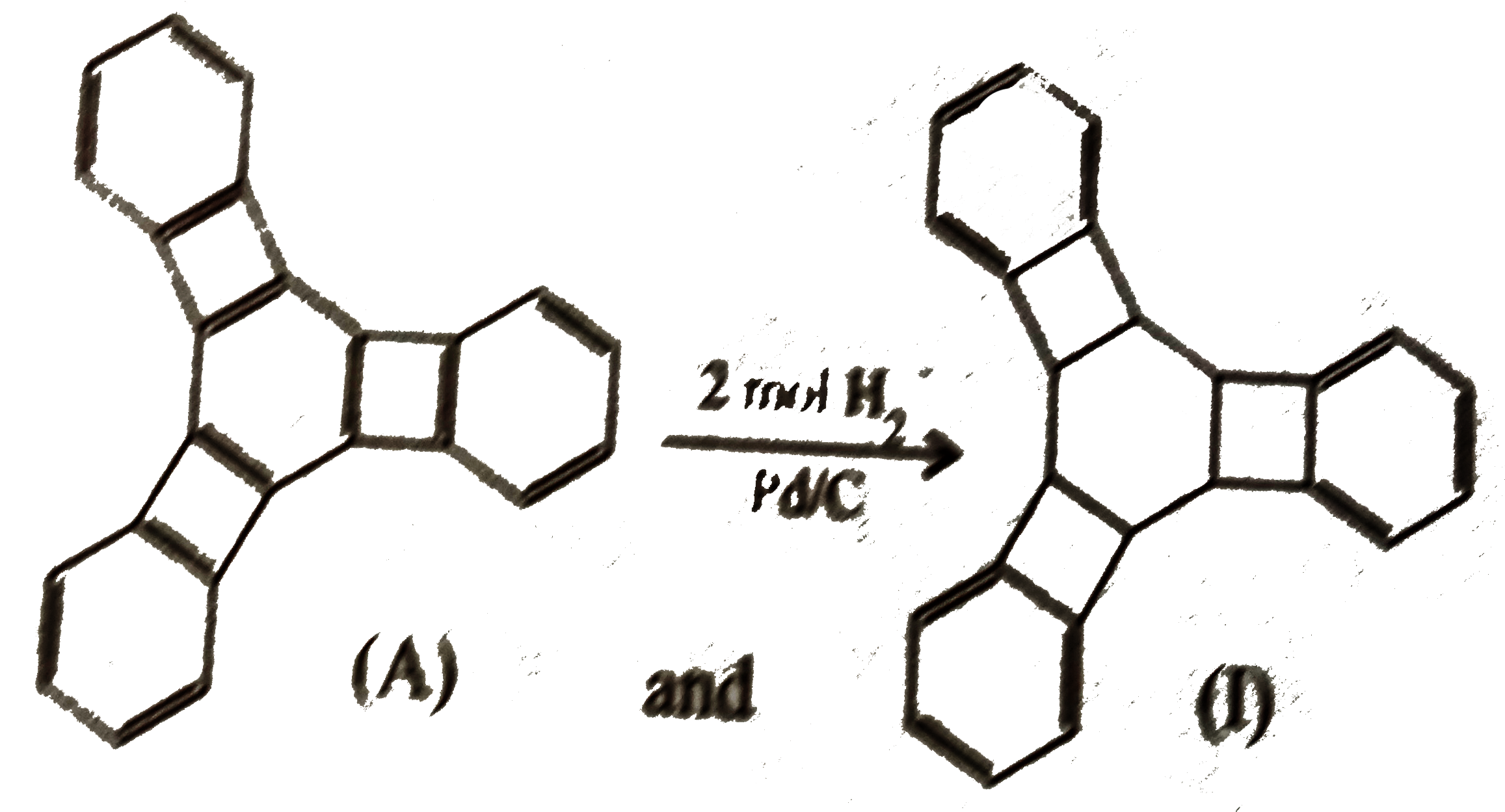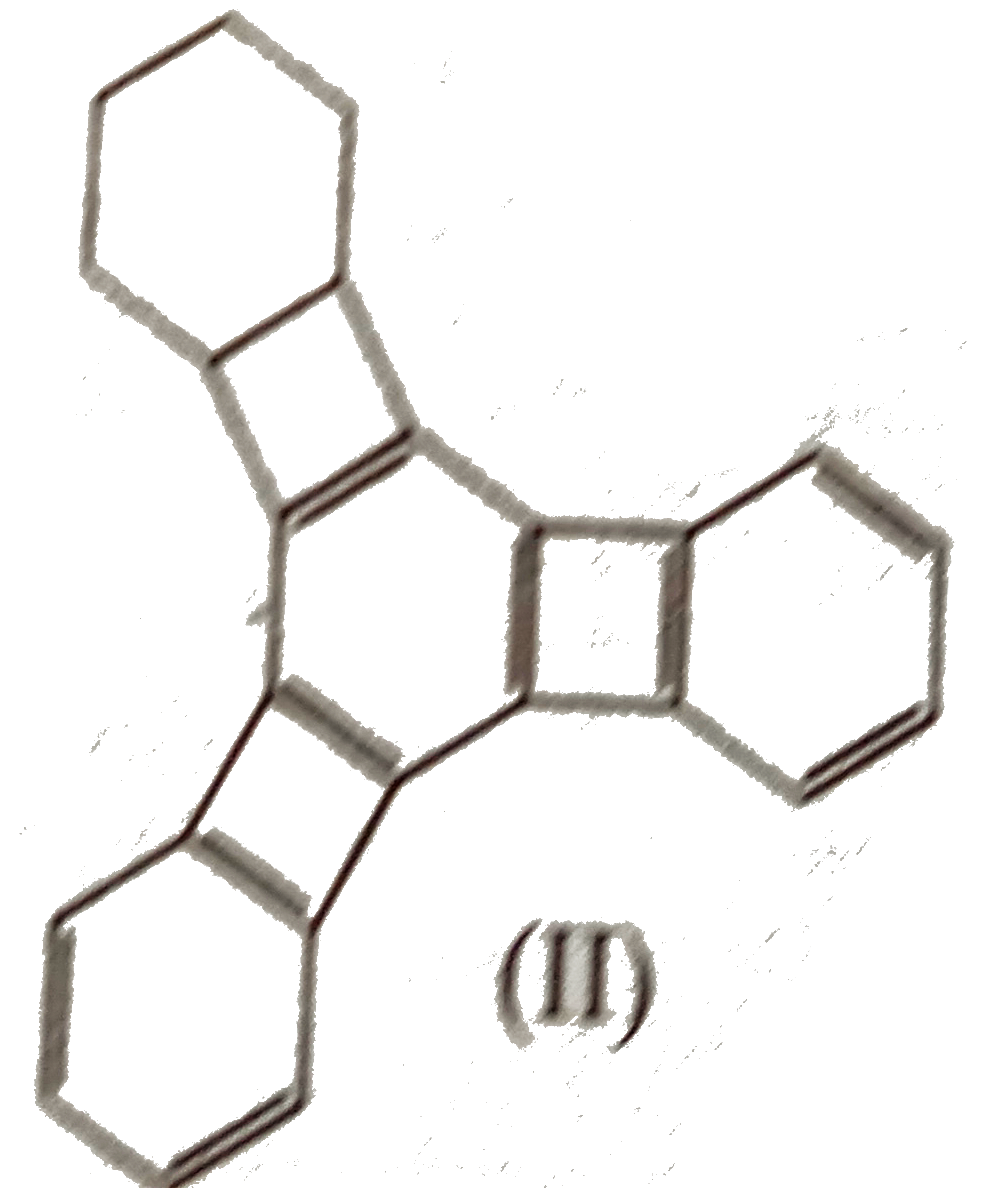Statement I : Dimethyl sulphide is commonly used for the reduction of an ozonide of compound.
Statement II: It reduces the ozonide giving water soluble dimethyl sulphoxide and excess of it evaporates.
If both assertion and reason are correct, and reason is the correct explanation of the assertion
If both assertion and reason are correct, and reason is the correct explanation of the assertion
If assertion is correct but reason is incorrect
If assertion is incorrect but reason is correct
The correct Answer is:A
Step by step video & image solution for Statement I : Dimethyl sulphide is commonly used for the reduction of an ozonide of compound. Statement II: It reduces the ozonide giving water soluble dimethyl sulphoxide and excess of it evaporates. by Chemistry experts to help you in doubts & scoring excellent marks in Class 12 exams.
Updated on:21/07/2023Topper's Solved these Questions
- ALKENE, ALKANE & ALKYNE BOOK - ALLENCHAPTER - ALKENE, ALKANE & ALKYNE EXERCISE - EXCERSISE-1
25 Videos
- ALKENE, ALKANE & ALKYNE BOOK - ALLENCHAPTER - ALKENE, ALKANE & ALKYNE EXERCISE - EXCERSISE-2
20 Videos
- ALKENE, ALKANE & ALKYNE BOOK - ALLENCHAPTER - ALKENE, ALKANE & ALKYNE EXERCISE - EXERCISE-5[A]
68 Videos
- AIIMS 2019BOOK - ALLENCHAPTER - AIIMS 2019EXERCISE - CHEMISTRY
40 Videos
- ALKYL AND ARYL HALIDEBOOK - ALLENCHAPTER - ALKYL AND ARYL HALIDEEXERCISE - EXERCISE-05 (B)
35 Videos
Similar Questions
Statement-I : Alums are isomorphous crystalline double salts, which are soluble in water.
Statement-II : The aq. Solutions of alums have acidic character due to hydrolysis.
View SolutionStatement I: There is a releatikonship between the ability of a sugar to mutarotate and to reduce Tollens reafent.
Statement II: The reduction of Tollens reafent and mutarotation both depend on the presence of free carbonyl form.
View SolutionWhenever a reaction between an oxidising agent and a reducing agent is carried out, a compound of lower oxidation state is formed if the reducing agent is in excess and a compound of higher oxidation state is formed if the oxidising agent is in excess. Justify this statement giving three illustrations.
View Solutiona. Statement- 1 and Statement- 2 are true, and state-ment- 2 is the correct explanation of Statement- 1.
b. Statement- 1 and Statement- 2 are true but Statement- 2 is not the correct explanation of Statement- 1.
c. Statement- 1 is true and Statement- 2 is false.
d. Statement- 1 is false and Statement- 2 is true.
e. Statement- 1 is false and Statement- 2 is false.
Statement- 1:
Compound (I) is formed not (II).
 and
and 
Statement- 2:
Due to the reduction of central ring, 3 four-membered anti-aromatic rings become stable to from (I). In (II), due to the reduction of terminal ring, only one anti-aromatic ring can be stabilised.
View SolutionThese questions consists of two statements each, printed as Statement-I and Statement-II. While answering these Questions you are required to choose any one of the following four responses.
Statement-I: Addition of ethylene glycol(non-volatile)to water lowers the freezing point of water hence used as antifreeze.
Statement-II: Addition of any substance to water lowers its freezing point.
View SolutionIdentify the anion present in the following compounds:
i] Compound X on heating with copper turnings & conc. sulphuric acid liberates a reddish brown gas.
ii] When a solution of compound Y is treated with silver nitrate solution a white precipitate is obtained which is soluble in excess of ammonium hydroxide solution.
iii] Compound Z which on reacting with dilute sulphuric acid liberates a gas which turns lime water milky, but the gas has no effect on acidified potassium dichromate solution.
iv] Compound L on reacting with barium chloride solution gives a white precipitate insoluble in dilute hydrochloric acid or dilute nitric acid.
View Solution(i) A powdered substance (A) on treatment with fusion mixture gives a green coloured compound (B). (ii) The solution of (B) in boiling water on acidification with dilute H2SO4 gives a pink coloured compound (C).
(iii) The aqueous solution of (A) on treatment with NaOH and Br2− water gives a compound (D).
(iv) A solution of (D) in conc. HNO3 on treatment with lead peroxide at boiling temperature produced a compound (E) which was of the same color at that of (C).
(v) A solution of (A) on treatment with a solution of barium chloride gave a white precipitate of compound (F) Which was insoluble in conc. HNO3 and conc. HCl.
Consider the following statement :
(I) Anions of both (B) and (C ) are diamagnetic and have tetradhedral geometray.
(II) Anions of both (B) and ( C) are paramagnetic and have tetrahedral geometry.
(III) Anions of (B) is paramagnetic and that of (C ) is diamagnetic but both have same tetrahedral geometry.
(IV) Green coloured compound (B) in a neutral of acidic medium disproportionates to give (C ) and (D).
Of these select the correct one from the code given :
View SolutionFor each of the following statement determine which type of 'or ' is used ? Also check whether the compound statement is true or false.
(i) 5 is prime or odd.
(ii) school is closed if there is a holiday or Sunday.
(iii) a tie or a T-shirt is free on puchasing a coat.
View SolutionStudy the following and choose the correct statements
I)Hormones produced by adenohypohysis are protein hormones
II)Hormones stores by neurohypophysis are peptide hormones
III)Catecholamines are water soluble hormones
IV)Thyroid hormone is derived from aminoacid the tyrosine
View SolutionStatement-I : Solubility on n-alcohols in water decreases with increase in molecular weight
Because
Statement-II: The relative proportion of the hydrocarbon part in alcohols increases with increasing molecular weight which permits enhanced hydrogen bond with water.
View Solution
